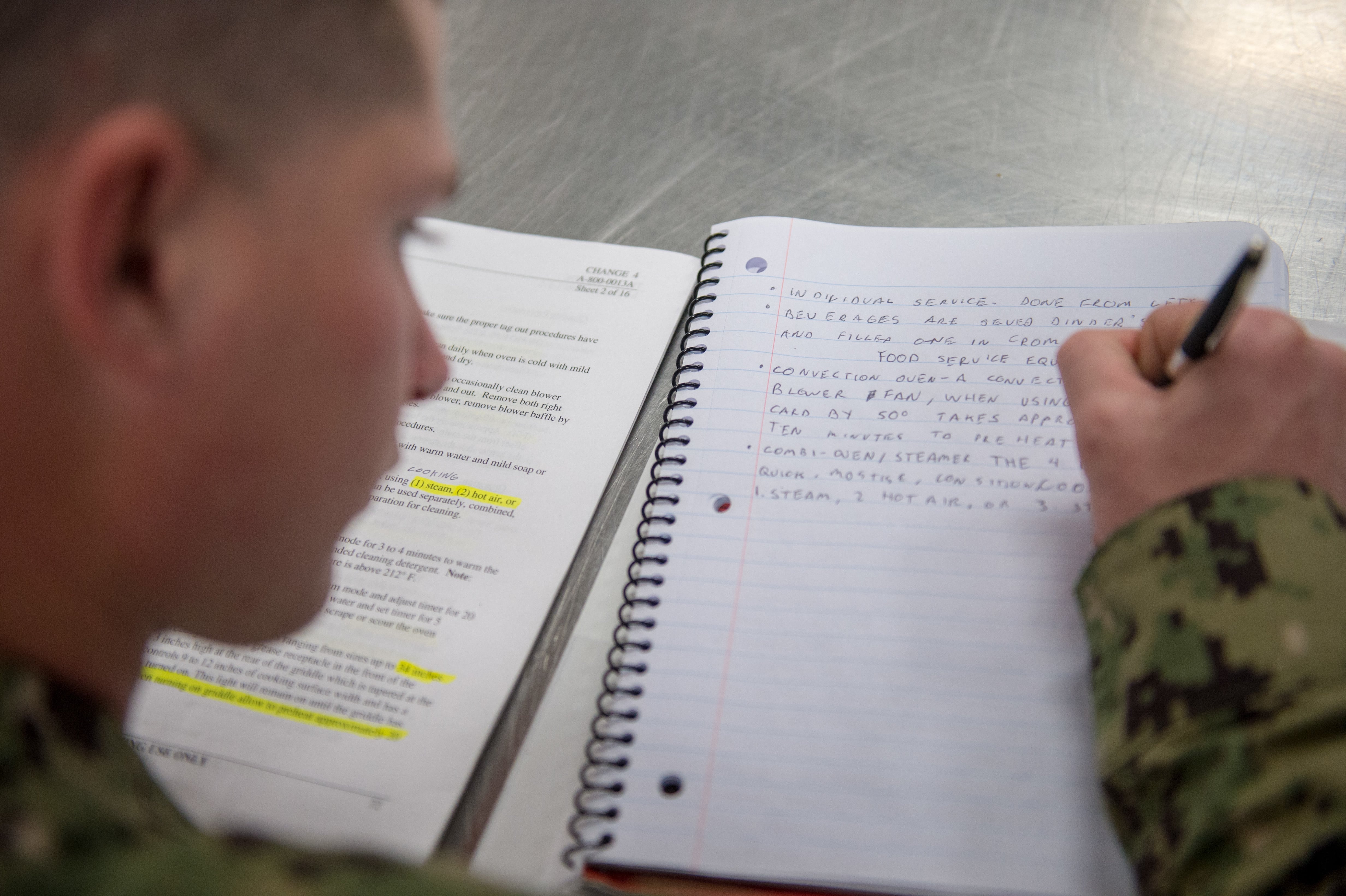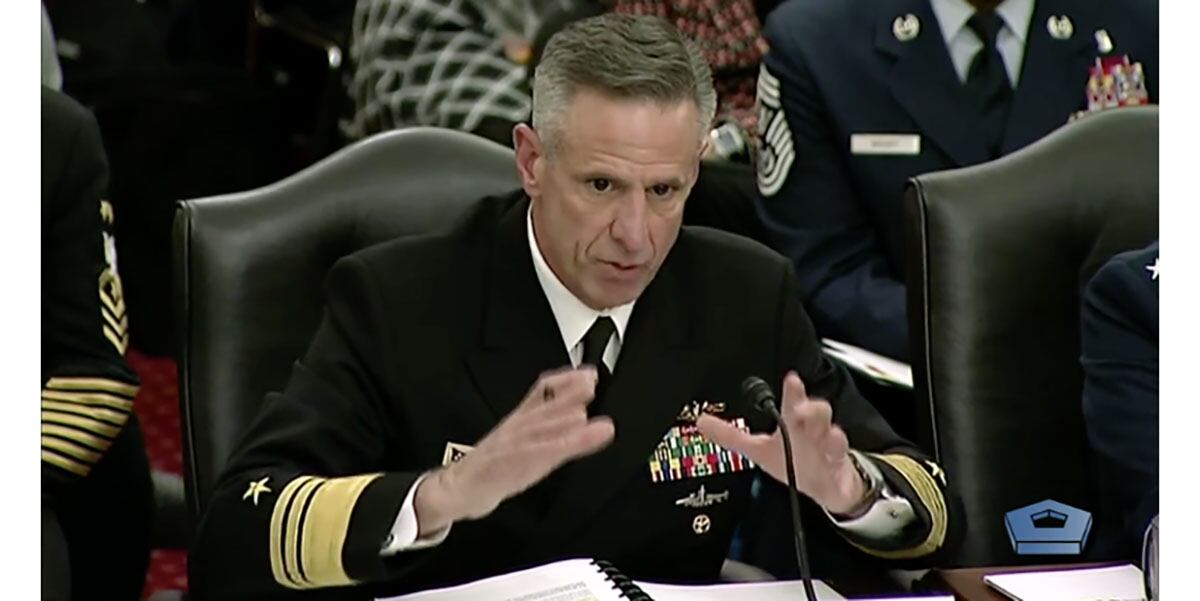In February, the Department of the Navy released Education for Seapower Strategy 2020, a joint Navy-Marine Corps strategy to boost the intellectual and technological capabilities of our force. One of the key elements of that strategy is to create a new United States Naval Community College, which will dramatically expand educational opportunities for our enlisted force.
The need for this new community college is driven by the changing nature of warfare. In the 21st century, war is becoming even more technologically complex, and moving at an accelerated pace, forcing decision-making down to the NCO and petty officer level. To perform at our best and to protect our national security, we need to deploy the most technically advanced and intellectually capable enlisted force in the world. The raw material we possess — our enlisted sailors and Marines — is the best in the world. They are smart, disciplined, and focused. If we give them additional tools, through advanced community college educations, they will be even more effective.
RELATED

This past week, we reached two important milestones in our effort to create this new community college: we announced the selection of Dr. Randi Cosentino to serve as the institution’s first president, and the Coast Guard announced that they will be joining the Marines and Navy in the creation of the new school. With these exciting goals reached, it is now time to share some thoughts about the educational philosophy underlying the program and the next steps moving forward.
The purpose of the U.S. Naval Community College is to provide great college educations to our enlisted force in order to enhance the combat and deterrence effectiveness of the Navy and Marine Corps. The community college will grant college credit to sailors and Marines for training they receive in boot camp and at their rating or MOS training schools.
The community college will also offer a small number of general education courses designed to meet the specific educational needs of our force. For example, we are likely to offer a basic reading and writing skills course focused on the history of the Navy and Marine Corps and an ethics course designed to help our team members make positive decisions in their personal and professional lives.
We will then hand off our enrolled team members to educators at some of America’s best community and four-year colleges, who will help our sailors and Marines complete their degrees. The college will operate 100 percent online, the only effective way to offer great educations to a large expeditionary force that is deployed all over the world.
The community college will offer roughly 10 majors in high-demand fields needed in the civilian world and in our military forces: fields of study like information technology, cyber, engineering, data science, and management. Enrolled students will have an opportunity to earn associate’s degrees as well as up-to-date industry certifications in their majors. For the first year or two, we will select students to participate in the college, as we prove the concept will work and win authorization from Congress to continue and grow. Once, however, the new college is up and running at scale, we intend to offer open enrollment to our entire enlisted force. Our first pilot program, with approximately 500 students, will begin in January 2021. This will be followed by a second pilot program, with 5,000 students, in 2022. We hope to begin full-scale operations in 2023.
RELATED

Our main goal this spring is to issue an RFP, or request for proposals, asking civilian community colleges and universities to apply to partner with us and join our first pilot program. We are currently drafting that RFP with Navy lawyers and hope to have it issued within the month. We are looking to partner with higher education institutions with proven track records delivering excellent, cost-effective online education to working adults at scale.
For me, quality is very important. I want to be able to look every one of our enlisted students in the eye and be able to assure them that they are getting access to some of the most valuable educational programs in the world.
A second goal this spring and summer is to work with Navy, Marine Corps and Coast Guard commanders to identify cohorts of students for the pilot program. Though nothing is currently final, I am hoping we will be able to place sailors who have recently finished Nuclear School in an engineering major; sailors and Marines in the information warfare communities in degree programs in IT and cyber; and members of the intelligence community in a data science major. With the Coast Guard joining the program, we will seek their input on the best programs for their team members.
A third major goal is to build support for the program in Congress. Though the Navy has funding to create the college and move forward with the first pilot program, it is essential that we win long-term authorization and budgetary support from the relevant congressional committees. In an important development, Sergeant Major of the Marine Corps Troy Black and MCPON Russell Smith met with congressional staff last month to explain the need for the program. My team has followed up as well, providing our perspective on the need and potential for the college. it is my hope that Congress will respond positively as they consider defense needs over the coming year.
The U.S. Naval Community College is a new concept, and in the armed forces, change is always challenging. But I have been very excited to see how positively the idea has been embraced by Navy and Marine Corps leadership. They know, as I do, that the community college is critical if we are to continue to deploy the world’s best fighting force.
John R. Kroger is the chief learning officer for the U.S. Department of the Navy.




